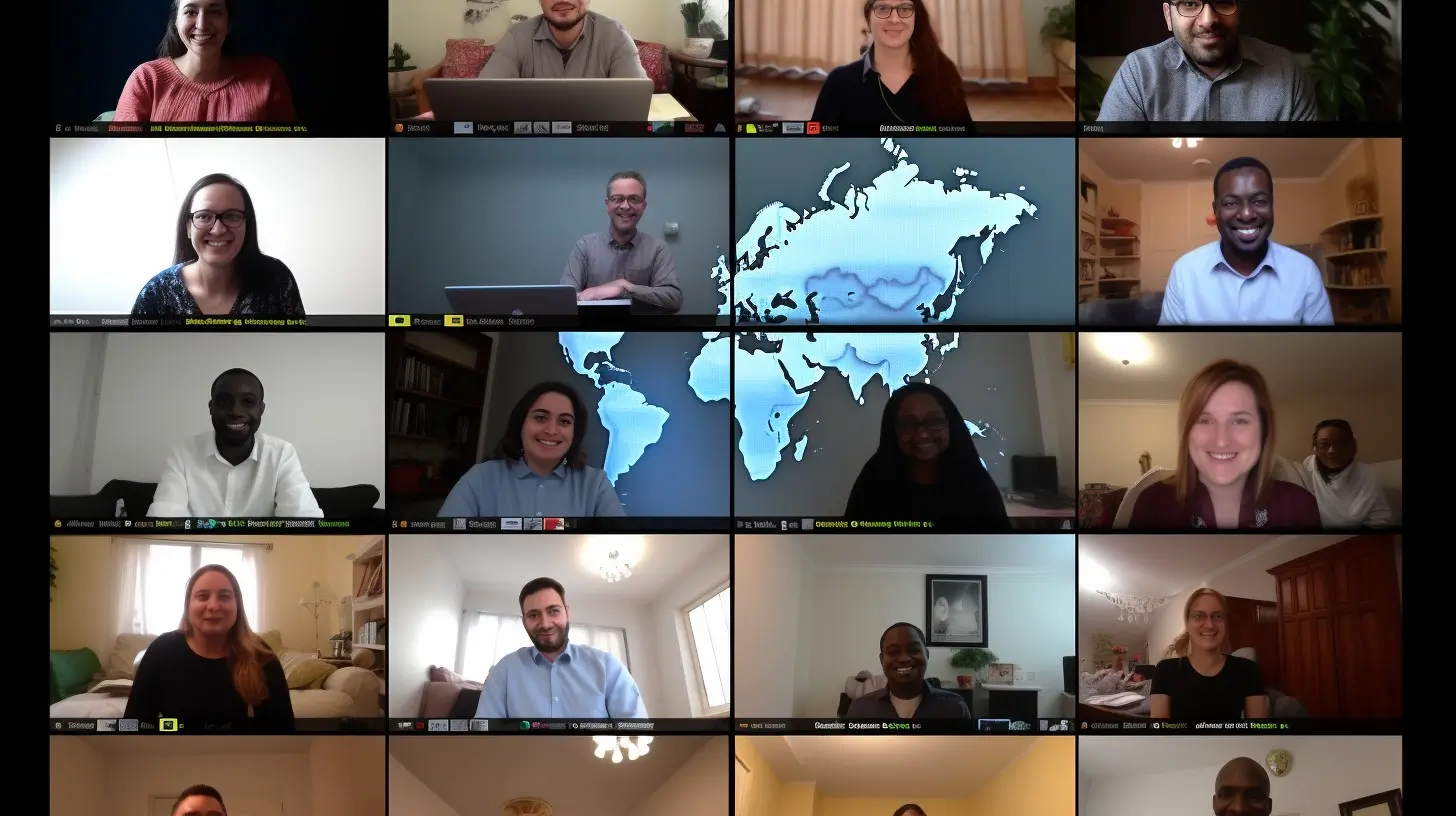How Technology, Talent, and Impact Are Shaping a New Era ?
A continental transformation in motion
Africa is entering a historic turning point. By 2035, the continent will host over one-third of the global youth population, with more than 375 million young people entering the labor market. Yet, the traditional job market cannot absorb them all.
This imbalance between demographic growth and employment opportunities is forcing a rethink: How can Africa turn its human capital into a global advantage?
The answer lies in a new paradigm the Future of Work in Africa, where remote employment, digital skills, and inclusive platforms like Breedj.com are reshaping the very definition of work.
1. What does “Future of Work” mean for Africa?
Globally, the “Future of Work” describes the convergence of three forces:
- Digital transformation, driven by AI and automation
- Flexible work models, including remote and hybrid jobs
- New skills and mindsets focused on adaptability, innovation, and autonomy
In Africa, these trends take on a unique dimension. The continent is leapfrogging traditional models, moving directly into a digital-first, borderless, and impact-driven economy.
According to the World Economic Forum (2024):
- The demand for digital and tech-related roles in Africa has grown by 26% in the past two years
- Over 60% of African employers now value remote-ready skills such as project management data analysis, and customer success
- The freelance and remote talent economy is expected to generate $20 billion in income annually by 2030
This means that the African workforce is no longer defined by geography it’s becoming global by design.
2. From challenge to opportunity: How Africa is reinventing work

For decades, Africa was seen as the continent of potential but not performance. That perception is changing fast.
- Internet penetration now exceeds 46%, and mobile connectivity covers almost 90% of the population
- Tech hubs have multiplied, from Lagos to Nairobi, Accra to Kigali, and Cape Town to Tunis
- Investments in African startups reached $6.5 billion in 2022, up from less than $300 million in 2015 (Partech Africa report)
This digital acceleration creates a new generation of “remote-ready” professionals young, multilingual, and connected.
From developers and digital marketers to virtual assistants and data analysts, African professionals are proving they can compete globally while working locally.
Breedj, a fast-growing HR-tech platform, is one of the players making this transition real.
3. Case Study #1 – From Africa to Europe: Building remote career paths
In 2025, a group of 50 young professionals from Africa completed a remote employability program supported by Breedj.
Within three months, 30% of them secured paid internships or remote roles with European SMEs in digital marketing, data entry, and customer support.
Through Breedj’s platform, companies could:
- Legally hire talents via Employer of Record (EOR) contracts
- Manage payroll and compliance locally
- Access pre-trained, English-speaking professionals ready to integrate into global teams
- This model not only created income opportunities but also reduced youth unemployment in the region
As one participant explained:
“Before Breedj, I couldn’t imagine working for a company in France or Germany from my home in Antananarivo. Today, I’m part of an international team and earning in euros.”
This story illustrates how remote work is not just a trend it’s a tool for inclusion and empowerment.
4. Case Study 2 How African startups are hiring globally
Beyond individuals, African startups are also embracing this model.
In Nairobi, a fintech company scaling into francophone markets faced a talent bottleneck. Through Breedj’s EOR solution, they hired customer success and compliance officers based in Dakar and Abidjan without setting up local entities.
The result:
- 30% reduction in HR and compliance costs
- Faster onboarding (less than 10 days)
- Cross-continental collaboration that boosted customer retention by 15%
Breedj’s infrastructure handled all local payroll, taxes, and contracts, allowing the company to focus on growth rather than bureaucracy.
This demonstrates how the Future of Work isn’t just about flexibility it’s about scalability, trust, and access.
5. Why Africa is the next global talent hub
Several megatrends explain why the world is now turning to Africa for talent:
1. A young, educated, and connected workforce
By 2030, Africa will produce more university graduates than Europe, driven by new digital universities and training initiatives.
2. Digital infrastructure catching up
Fiber networks, mobile money, and cloud adoption are making it easier for African professionals to work for global companies.
3. Competitive cost advantage
Hiring in Africa can cost 40–60% less than in Europe or North America, without compromising quality a key advantage for startups and SMEs.
4. Shared impact mindset
Unlike traditional outsourcing, Africa’s workforce movement is driven by impact entrepreneurship aligning profit with purpose, as platforms like Breedj are doing.
6. Breedj.com – Powering the new era of work in Africa
At the heart of this transformation is Breedj.com, a platform designed to make Africa’s workforce truly borderless.
Breedj acts as both an HR-tech solution and an Employer of Record (EOR) enabling companies to hire, manage, and pay African talent across 9 countries in less than 48 hours.
Breedj’s impact in numbers
- Presence in 9 African countries (Mauritius, Kenya, Senegal, Tunisia, Morocco, Rwanda, Madagascar, Côte d’Ivoire, Cameroon)
- Hundreds of professionals placed in remote roles across tech, support, finance, and creative industries
- A sustainable business model, combining profitability with measurable social impact
A model that combines business and purpose
Breedj’s innovation lies in merging tech automation (AI matching, payroll, and compliance tools) with social impact (creating remote jobs, upskilling talents, and reducing inequality).
Its vision is clear:
“To make Africa the global hub for remote talent by 2030.”
By empowering African professionals and connecting them with international employers, Breedj is not just participating in the Future of Work it’s building it.
7. The road ahead: From remote work to remote ecosystems
The Future of Work in Africa will not stop at remote jobs.
It will evolve into ecosystems of digital collaboration, where training, employment, and innovation are interconnected.
Platforms like Breedj are paving the way for a future where:
- Youth employment meets global demand
- AI tools identify and match skills with precision
- Social impact becomes a standard business metric
This is the new African dream one that’s digital, inclusive, and borderless.
Africa’s decade of opportunity
The Future of Work in Africa is not a distant vision it’s unfolding now.
With its young population, tech adoption, and entrepreneurial spirit, the continent has everything it takes to become the world’s next workforce powerhouse.
And with platforms like Breedj.com, this future is already being built one remote contract, one opportunity, one impact story at a time.
8. The Rise of Artificial
Intelligence: Adapting Africa’s Workforce to AI The next frontier of the Future of Work in Africa will be shaped by Artificial Intelligence (AI). While global debates often focus on job displacement, Africa has the opportunity to turn AI into a catalyst for inclusive growth provided the right skills and policies are in place.
According to the International Finance Corporation (IFC), AI could create up to 20 million new digital jobs in Africa by 2035, particularly in data annotation, customer engagement, logistics optimization, and local AI training models. However, the challenge is not adoption it’s adaptation.
African workers must rapidly acquire AI literacy and problem-solving skills to stay relevant. That means going beyond technical training to embrace critical thinking, adaptability, and creativity the human skills that machines can’t replicate.
Breedj is already integrating this dimension into its model. By connecting talents to international projects and encouraging continuous learning, the platform helps professionals develop AI-readinessthe ability to work with intelligent systems, not against them.
As AI reshapes every industry, Africa’s future won’t depend on resisting automation, but on training a generation that thrives in partnership with it.













